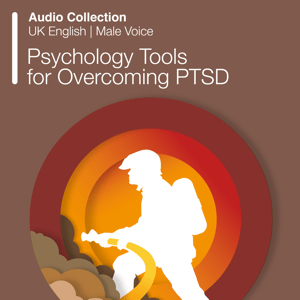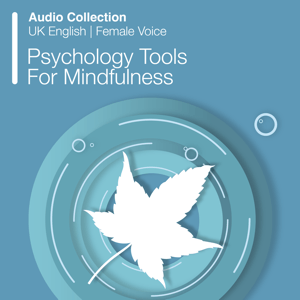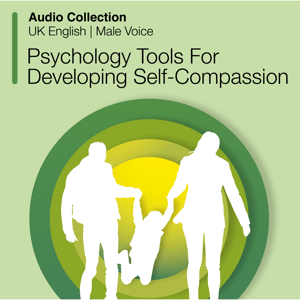Psychology Tools For Relaxation Audio Collection
This audio collection provides guided relaxation exercises designed to help individuals reduce stress, and achieve a state of deep relaxation. It includes structured breathing exercises, progressive muscle relaxation, and imagery techniques that support mental and physical well-being.
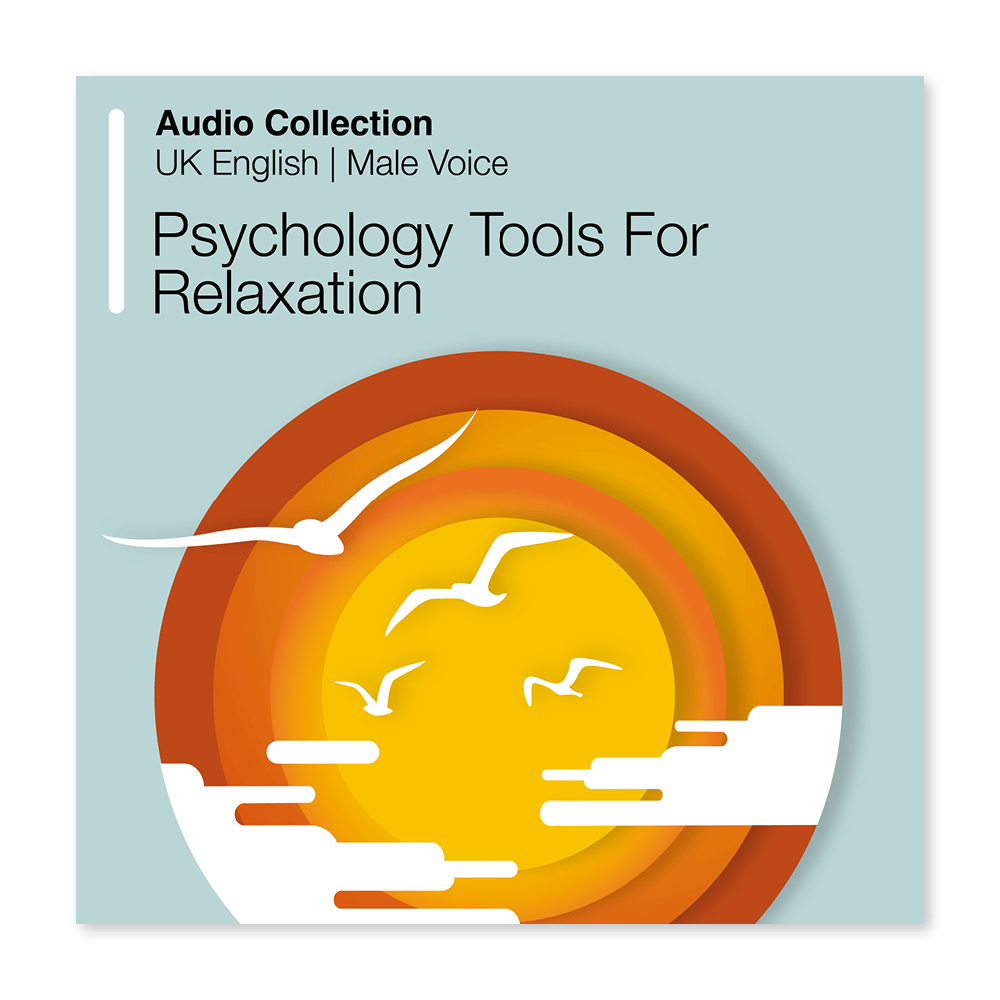
Download or send
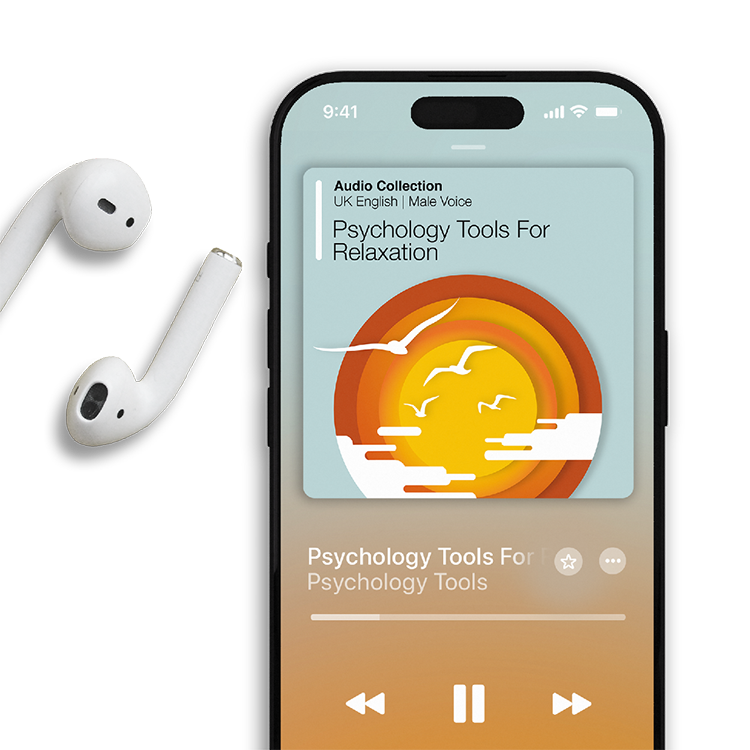
Overview
Relaxation techniques are essential tools for reducing stress, managing anxiety, and promoting overall mental health. The Psychology Tools For Relaxation Audio Collection offers structured exercises that help individuals activate their body's natural relaxation response.
This resource integrates evidence-based relaxation methods including controlled breathing, progressive muscle relaxation, and guided imagery. These techniques help to regulate the autonomic nervous system, counteracting the effects of chronic stress and promoting a sense of calm and safety.
This collection can be used independently or incorporated into therapy sessions to help clients develop effective relaxation skills.
Why use this resource?
This audio collection offers practical, structured guidance on relaxation practices, making it a valuable tool for individuals and clinicians alike. It includes:
- Guided exercises to help individuals engage in structured relaxation techniques.
- Simple methods which are proven to reduce stress and anxiety.
- Flexibility in approach, allowing for both self-directed use and therapist-guided integration.
- Clear instructions to support individuals in developing long-term relaxation habits.
Key benefits
Regulation
Structure
Accessibility
Effectiveness
What difficulties is this for?
Transdiagnostic
Suitable for most clients irrespective of diagnosis.
Generalized Anxiety Disorder (GAD)
Helps manage persistent worry and physical tension.
Post-Traumatic Stress Disorder (PTSD)
Supports emotional regulation and grounding.
Insomnia
Promotes relaxation to support better sleep quality.
Chronic Pain
Helps individuals manage discomfort through relaxation techniques.
Workplace Stress And Burnout
Offers structured relaxation strategies to prevent emotional exhaustion.
Physical Health
Supports stress reduction techniques beneficial for overall physical health.
Integrating it into your practice
Educate
Introduce the importance of relaxation in emotional regulation.
Select
Choose the appropriate exercise based on client needs and comfort levels.
Practice
Encourage clients to engage with the guided exercises regularly.
Reflect
Discuss the effects of relaxation practice on emotional and physical well-being.
Modify
Adapt relaxation techniques to fit individual preferences.
Sustain
Reinforce consistent practice to ensure long-term benefits.
Theoretical background and therapist guidance
Relaxation techniques are grounded in well-established psychological and physiological principles. At their core is the capacity to shift the body out of a state of threat and into a state of calm. This process involves activating the parasympathetic branch of the autonomic nervous system, which helps to regulate heart rate, breathing, and muscle tension. In contrast to the sympathetic ‘fight or flight’ response, parasympathetic activation supports recovery, restoration, and a subjective sense of safety.
Each technique in this collection draws on specific therapeutic approaches. Progressive muscle relaxation (PMR), originally developed by Edmund Jacobson, is based on the principle that mental calmness can be achieved through physical relaxation. Controlled breathing techniques harness the connection between breath and physiology, slowing respiratory rate to influence heart rate variability and reduce physical symptoms of stress. Guided imagery works by directing attention away from stressors and into soothing mental landscapes, supporting both cognitive and emotional regulation.
Therapists can integrate these methods into clinical work in a number of ways. They may be used to help clients manage acute distress, support emotion regulation, or form part of a broader treatment plan. Regular practice enhances the effectiveness of relaxation exercises, helping individuals become more attuned to their internal states and more capable of self-soothing. Whether used as standalone exercises or alongside psychological interventions, relaxation techniques can be powerful tools for supporting well-being and building resilience.
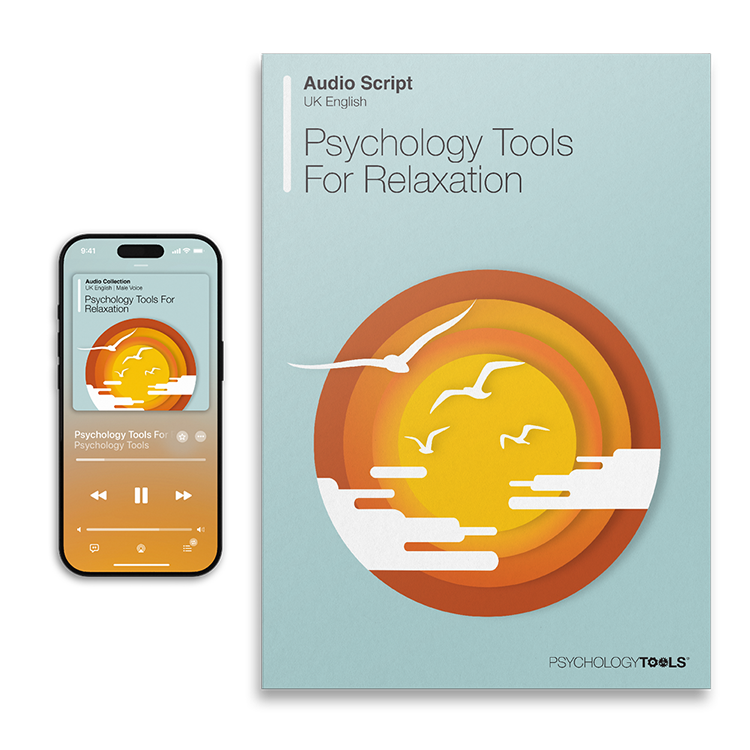
What's inside
- Track 1 – Relaxed breathing exercise.
- Track 2 – Progressive muscle relaxation exercise.
- Track 3 – Peaceful place exercise.
- Track 4 – Combined relaxation exercise.
FAQs
How this resource helps improve clinical outcomes
By incorporating relaxation techniques, individuals and clinicians can expect:
- Techniques help regulate the body's stress response.
- Support to self-soothing and emotional balance.
- Encouragement of relaxation before bedtime to enhance rest.
- Reduction of muscle tightness associated with chronic stress.
Clinicians who use this resource also use
References and further reading
- Benson, H., Beary, J. F., & Carol, M. P. (1974). The relaxation response. Psychiatry, 37 (1), 37–46. https://doi.org/10.1080/00332747.1974.11023785
- Bernstein, D. A., & Borkovec, T. D. (1973). Progressive relaxation training: A manual for the helping professions. Research Press.
- Elton, D., Burrows, G. D., & Stanley, G. V. (1978). Relaxation: Theory and practice. Australian Journal of Physiotherapy, 24 (3), 143–149. https://doi.org/10.1016/S0004-9514(14)60609-9
- Jacobson, E. (1938). Progressive relaxation. University of Chicago Press.
Just enter your name and email address, and we'll send you Audio Collection: Psychology Tools For Relaxation (English GB) straight to your inbox. You'll also receive occasional product update emails wth evidence-based tools, clinical resources, and the latest psychological research.
Product
Company
Support
- © 2025 Psychology Tools. All rights reserved
- Terms & Conditions
- Privacy Policy
- Cookies Policy
- Disclaimer
Working...
We value your privacy
This site uses strictly necessary cookies to function. We do not use cookies for analytics, marketing, or tracking purposes. By clicking “OK”, you agree to the use of these essential cookies. Read our Cookie Policy
